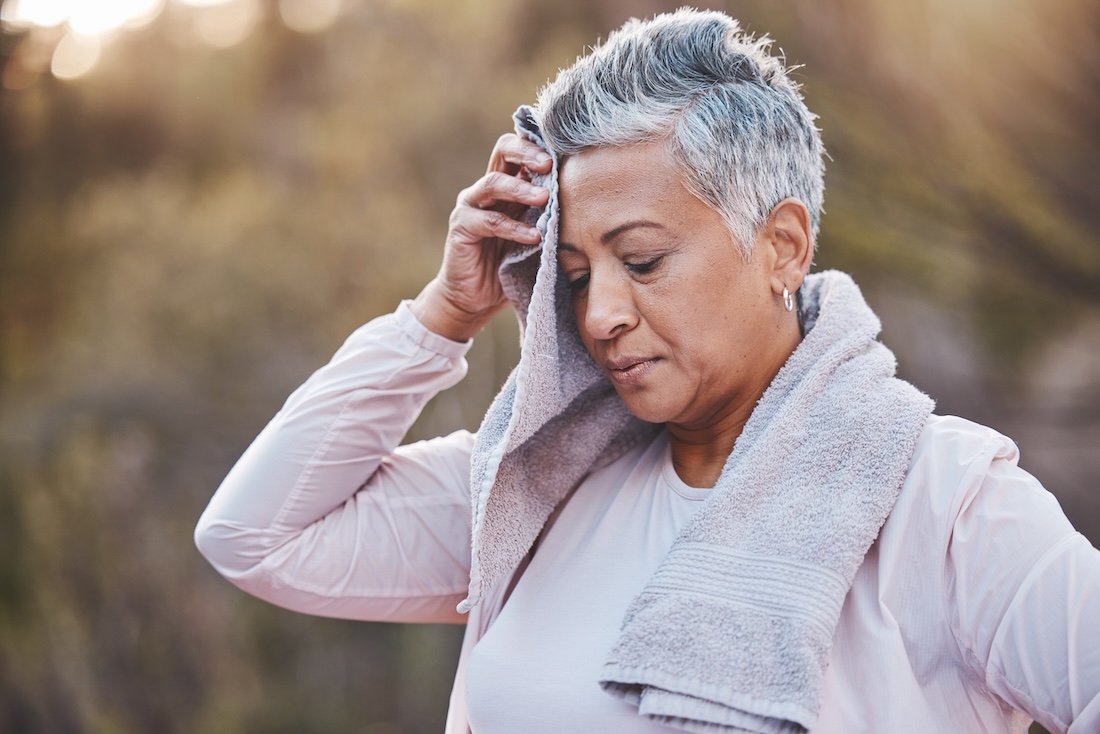From Pool to Locker Room: What Every Woman Should Know About UTIs and Vaginal Dryness After Swimming
Summer is peak season for two things I hear about often: pool days and preventable infections.
If you’ve ever wrapped up a relaxing afternoon by the water, only to be dealing with burning, urgency, or irritation later that night, you’re not alone. Post-swim urinary tract infections and vaginal dryness are more common than most women realize, especially during midlife and menopause.
There’s this idea that if you’re not swimming in a questionable lake or forgetting to shower, you’re in the clear. But the truth is, even chlorinated pools and clean locker rooms can set the stage for discomfort if your body is more sensitive or your hormones are shifting.
If your post-pool routine leaves you with itching, dryness, or the start of yet another UTI, let’s talk about why it happens and what you can actually do about it.
What’s Really Going On After a Swim
There’s nothing inherently dangerous about swimming. The activity itself is excellent for your joints, your mood, and your heart. But for women, especially women in perimenopause or menopause, frequent pool time can lead to some frustrating symptoms.
Here’s why.
Chlorine, while necessary for public health, is harsh on skin and mucous membranes. That includes the delicate tissue of the vulva and vaginal walls. If your estrogen levels are declining (which often starts in your 40s), that tissue becomes thinner, drier, and more prone to irritation. Add chlorine exposure, a tight swimsuit, and a damp environment, and the risk of infection or discomfort goes up.
To make matters worse, many women aren’t told that recurring UTIs or vaginal dryness could be hormone-related. They chalk it up to bad luck, not knowing there’s a very real, very fixable reason they keep having issues.
It’s Not Just You
I hear this all the time:
“I always feel dry and itchy after I swim, even when I rinse off.”
“I’ve had two UTIs this summer already. I don’t know what’s going on.”
“I can’t wear a swimsuit for more than an hour without feeling raw.”
These aren’t isolated complaints. This is what happens when hormonal changes intersect with summer routines that weren’t designed with menopausal bodies in mind.
What You Can Do to Prevent Post-Swim Irritation
A few minor adjustments can make a big difference:
1. Don’t linger in your suit.
After you’re done swimming, change out of your swimsuit as soon as you can. Sitting around in a wet suit keeps the vulva damp and warm, perfect conditions for irritation and bacterial imbalance.
2. Skip the scented products.
Many women try to “freshen up” with body washes or wipes after the pool. That can make things worse. Avoid anything scented near your vaginal area, including soaps, sprays, or wipes marketed as “intimate” products. Warm water and a gentle, fragrance-free cleanser (only externally) is enough.
3. Rinse off, but don’t scrub.
Chlorine needs to come off, but the skin down there doesn’t need to be exfoliated. A quick rinse in the shower is enough. No loofahs, no harsh scrubbing. Pat dry afterward.
4. Use a barrier balm.
If you’re prone to irritation, try applying a small amount of a barrier product, like a lanolin-based balm or a clean, fragrance-free ointment, before you swim. This helps reduce direct contact with chlorine.
5. Be proactive about hydration.
Drink water. Lots of it. It sounds simple, but staying well-hydrated helps flush your urinary tract and supports overall tissue health. And yes, water still counts if you’re sweating and swimming; it’s not going to absorb into your body through the pool magically.
If You’re in Menopause, Think About Moisture
One of the less talked about symptoms of menopause is vaginal dryness, and swimming can make it worse.
Lower estrogen levels affect the elasticity, moisture, and natural pH of the vaginal walls. That dryness can lead to microtears, irritation, and increased risk of infection, even without any visible signs.
If you’re experiencing discomfort after swimming (or after intimacy, exercise, or even just daily movement), it might be time to bring up vaginal estrogen therapy or talk through over-the-counter options.
Some women do well with silicone-based lubricants for comfort. Others benefit from regular use of a vaginal moisturizer a few times a week, even outside of intimacy. And in many cases, low-dose vaginal estrogen makes a significant difference and with minimal risk for most women.
UTIs: Prevention Beats Treatment
If you’re someone who gets a UTI every time summer rolls around, don’t wait until you’re miserable.
Here are a few things I often recommend:
Urinate soon after swimming
Stay hydrated and urinate regularly throughout the day
Consider vaginal estrogen if you’re postmenopausal and getting frequent infections
Use a pH-balanced cleanser and avoid irritating soaps
Wipe front to back
Consider D-mannose or cranberry supplements as a preventive, but don’t rely on them as treatment.
And most importantly, don’t brush it off if you feel that familiar discomfort starting up - burning, urgency, cloudy urine, and pain. Give us a call, UTIs caught early are easier to treat and less likely to become recurrent.
Staying Comfortable All Season Long
The goal isn’t to avoid swimming. The goal is to enjoy it without paying for it later.
You should be able to take your kids to the pool, go to your water aerobics class, or float with a book on a hot afternoon without worrying about discomfort afterward. If that’s not your experience right now, it’s time for a conversation.
At Concierge Medicine of Westlake, we treat the whole person, and that includes the parts of your health that might feel too personal or too specific to bring up in a rushed appointment. This is what we’re here for.
If you’re dealing with post-swim irritation, recurrent UTIs, or dryness that’s starting to interfere with your life, call 440-797-1871 or visit www.conciergemedicineofwestlake.com. Let’s make sure your summer stays comfortable.
It Doesn’t Have to Be a Trade-Off
You don’t have to choose between enjoying the water and protecting your health. With the proper care and a few adjustments, you can have both. If your body is asking for more support this season, give it what it needs. We’ll help you get there.


























